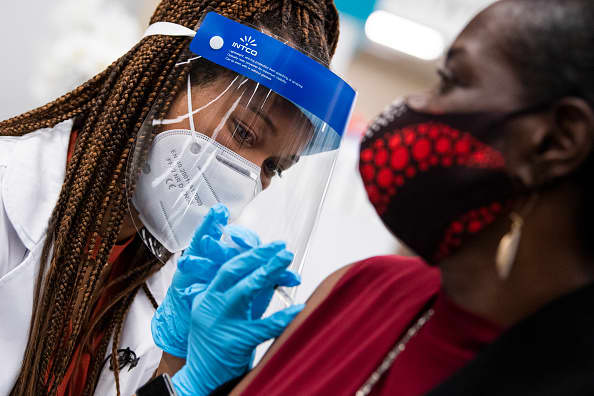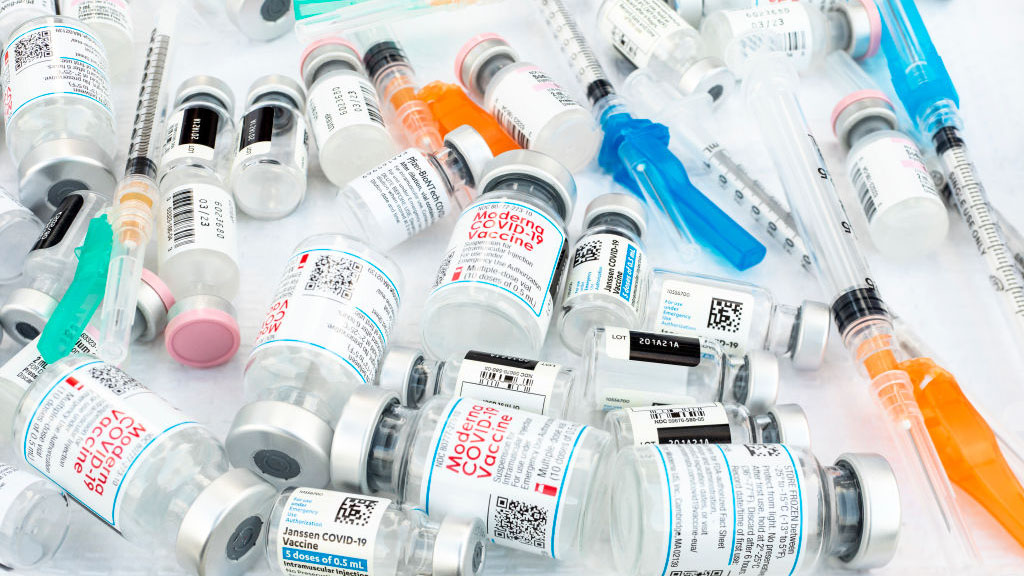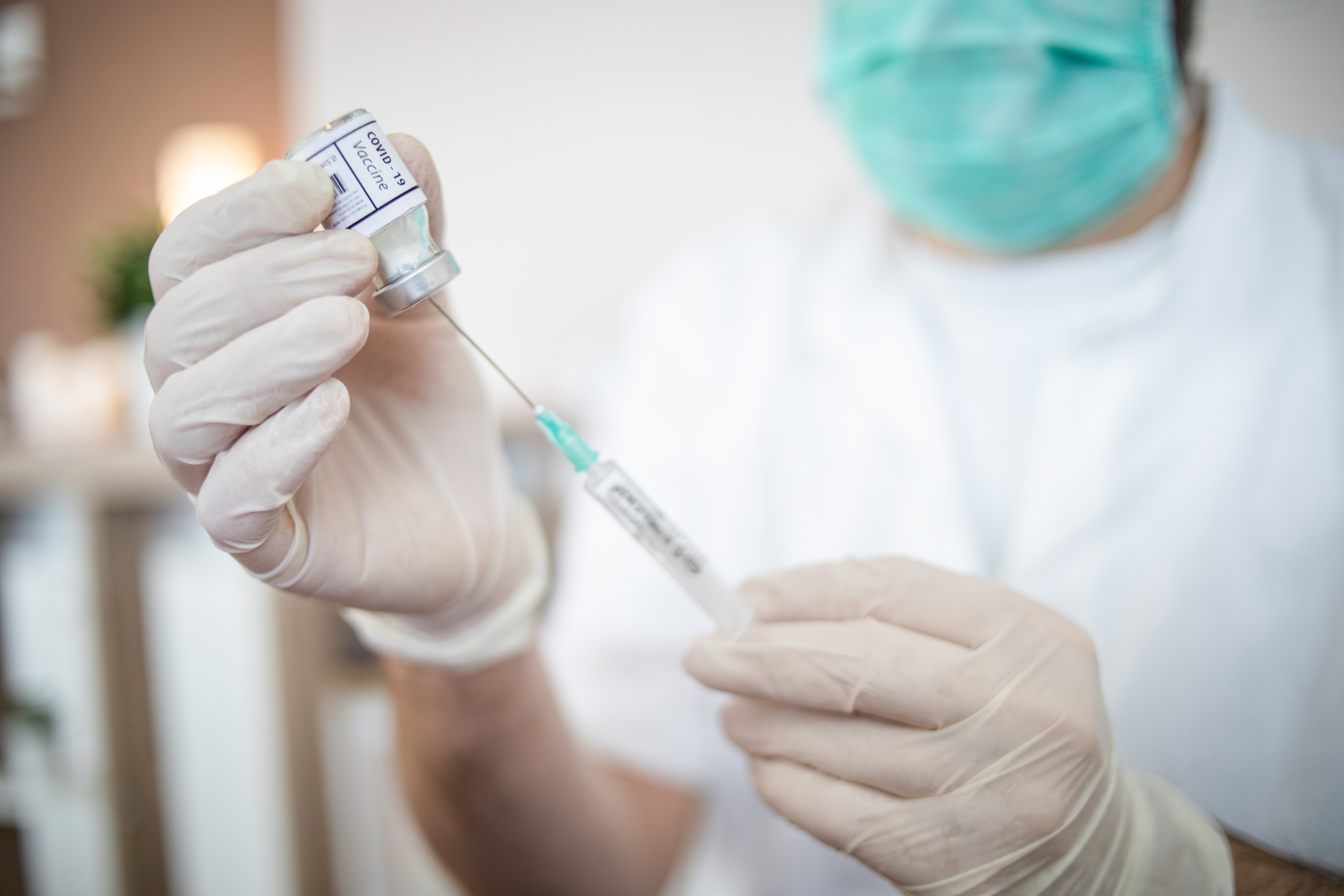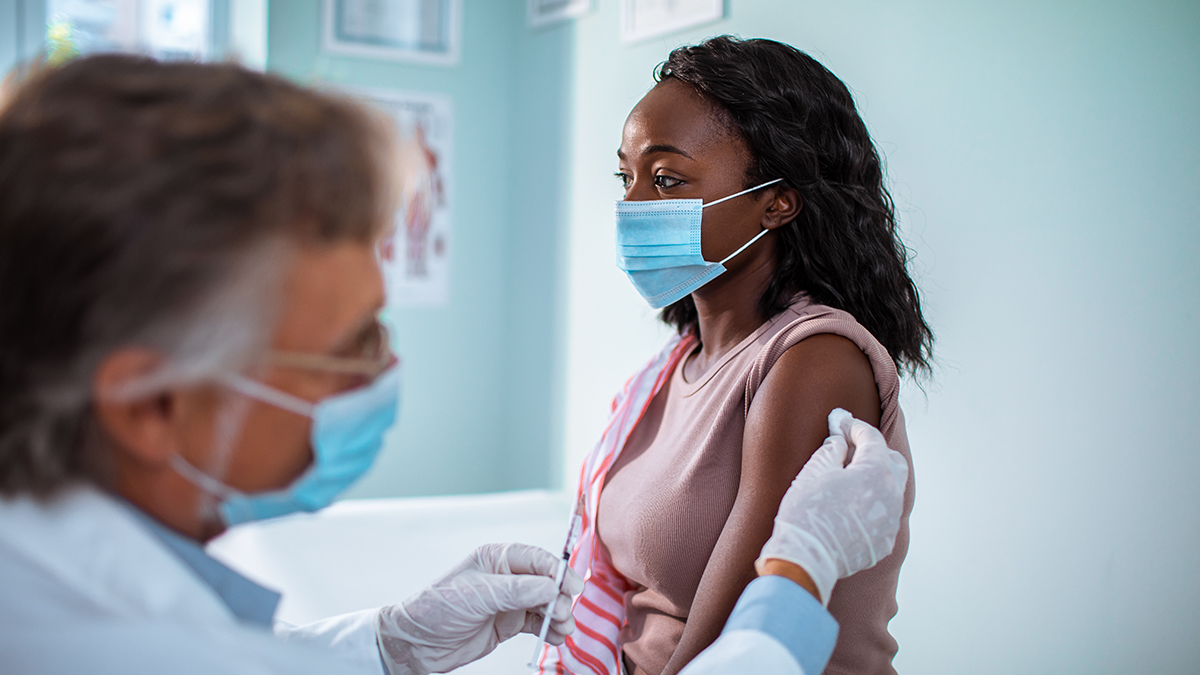The Food and Drug Administration authorized booster shots of the Moderna and Pfizer COVID-19 vaccines for all U.S. adults Friday, but can you now get one?
Boosters were previously recommended for people who initially received their second Pfizer or Moderna shots at least six months ago if they’re 65 or older or are at high risk of COVID-19 because of health problems or their job or living conditions. Boosters are also recommended for people who received the single-dose Johnson & Johnson vaccine at least two months ago.
While all three vaccines used in the U.S. continue to offer strong protection against severe COVID-19 illness and death, the shots’ effectiveness against milder infection can wane over time.
Here's what you need to know:
What Does the FDA Ruling Mean and What's Next?
FDA Acting Commissioner Janet Woodcock cleared the extra doses for all adults without the usual public meeting to review new data submitted by the companies.
Last week, Pfizer asked U.S. regulators to allow boosters of its COVID-19 vaccine for anyone 18 or older. Moderna resubmitted its application just two days ago.
The Centers for Disease Control and Prevention still has to authorize distribution of the booster doses before people can start receiving the shots, which could start this weekend.
The CDC's independent panel of vaccine experts is scheduled to meet on Friday to review the new data. CDC Director Rochelle Walensky on Wednesday said the public health agency would "act swiftly" after the FDA OKs the shots.
Who Was Already Eligible for Booster Shots?
Feeling out of the loop? We'll catch you up on the Chicago news you need to know. Sign up for the weekly> Chicago Catch-Up newsletter.
Booster shots of either Pfizer or Moderna have been authorized for seniors and others at high risk from COVID-19 because of their health problems, jobs or living conditions — six months after their last shot.
Moderna’s booster is half the dose that’s used for the first two shots.
As for recipients of the single-shot J&J vaccine, a COVID-19 booster is recommended for everyone at least two months after their vaccination. That's because the J&J vaccine hasn't proved as protective as the two-dose Moderna or Pfizer options.
Nearly 31 million Americans have received a dose beyond their original vaccination, including those with weakened immune systems, such as cancer patients and organ transplant recipients who need an extra dose to be fully vaccinated.
Some cities and states already allow all adults to get boosters of Pfizer's vaccine, but it is not yet official U.S. policy. In the last week, California, New Mexico, Arkansas, West Virginia and Colorado expanded the shots to all adults. New York City made a similar move.
Cook County health officials said Monday that "no one seeking a booster will be turned away from a vaccination site" and Will County issued a similar statement Thursday saying, "we will not turn anyone (over the age of 18) that wants a booster dose away."
Last week, Chicago Department of Public Health Commissioner Dr. Allison Arwady said Chicago residents over the age of 18 won't be turned away from getting COVID-19 vaccine booster shots as health officials report "plenty of availability."
"You're not gonna get turned away from getting a booster if you're over the age of 18," Arwady said in a Facebook Live event. "We have plenty of availability here."
Here's a complete breakdown of who is eligible so far, according to the CDC:
- People 65 years and older and residents in long-term care settings should receive a booster shot of Pfizer-BioNTech’s COVID-19 vaccine at least 6 months after their Pfizer-BioNTech primary series,
- People aged 50–64 years with underlying medical conditions should receive a booster shot of Pfizer-BioNTech’s COVID-19 vaccine atleast 6 months after their Pfizer-BioNTech primary series,
- People aged 18–49 years with underlying medical conditions may receive a booster shot of Pfizer-BioNTech’s COVID-19 vaccine at least 6 months after their Pfizer-BioNTech primary series, based on their individual benefits and risks, and
- People aged 18-64 years who are at increased risk for COVID-19 exposure and transmission because of occupational or institutional setting may receive a booster shot of Pfizer-BioNTech’s COVID-19 vaccine at least 6 months after their Pfizer-BioNTech primary series, based on their individual benefits and risks.
What counts as a qualifying underlying health condition? Here's a list from the CDC:
- Cancer
- Chronic kidney disease
- Chronic lung diseases, including COPD, asthma (moderate-to-severe), interstitial lung disease, cystic fibrosis, and pulmonary hypertension
- Dementia or other neurological conditions
- Diabetes (type 1 or type 2)
- Down syndrome
- Heart conditions (such as heart failure, coronary artery disease, cardiomyopathies or hypertension)
- HIV infection
- Immunocompromised state (weakened immune system)
- Liver disease
- Overweight and obesity
- Pregnancy
- Sickle cell disease or thalassemia
- Smoking, current or former
- Solid organ or blood stem cell transplant
- Stroke or cerebrovascular disease, which affects blood flow to the brain
- Substance use disorders
In addition to the Pfizer authorization, officials have also cleared booster doses of both the Pfizer and Moderna vaccines for people with weakened immune systems.
According to the CDC, immunocompromised groups include people who have:
- Been receiving active cancer treatment for tumors or cancers of the blood
- Received an organ transplant and are taking medicine to suppress the immune system
- Received a stem cell transplant within the last 2 years or are taking medicine to suppress the immune system
- Moderate or severe primary immunodeficiency (such as DiGeorge syndrome, Wiskott-Aldrich syndrome)
- Advanced or untreated HIV infection
- Active treatment with high-dose corticosteroids or other drugs that may suppress your immune response
The agency notes that "people should talk to their healthcare provider about their medical condition, and whether getting an additional dose is appropriate for them."





